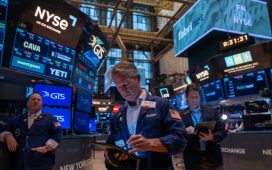- Why do Labour politicians not look better after taking money for clothes?
- Angela Rayner has the knack of looking as though she is about to pull a pint
- Business leaders could also be great ambassadors for British style

Best foot forward: Angela Rayner has the knack of looking as though she is about to pull a pint in the Dog and Duck
One obvious question in the Labour cash for fashion row remains unspoken. Why, when top Labour politicians have taken so much money from donors to buy new clothes, don’t they look a bit better?
The Chancellor’s suits are business-like, but too stiff and boxy.
Rachel Reeves is at least smarter than Angela Rayner, who has the knack of looking as though she is about to pull a pint in the Dog and Duck, no matter how much expensive clobber she wears. Sir Keir Starmer just looks dull, despite the designer specs.
Many of you will be thinking this is trivial – it’s how they perform that matters, not what they wear. Absolutely right – in theory.
In practice, what we wear at work matters a lot. Our apparel sends out messages, some of which we intend and some of which we don’t, about our status, our competence, our self-image and much else besides. Covid wreaked havoc with what little sense of how to dress at work many of us had. While working from home, many of us descended gratefully into pyjamas and tracksuits, maybe flinging on a jacket to go on Zoom.
For me, it is a relief that retailers this autumn are reporting a return to smart attire for women at work. The pencil skirt is making a comeback and #officesiren is a thing, apparently.
Many men, however, have not gone back to the suit and tie. Post-Covid, even some very big-cheese male CEOs are quite likely to show up to photo-shoots for a media profile tie-less or even wearing a comfy pullover. I blame the jeans-and-hoodie tech bro brigade for this unedifying trend. Casual may be de rigeur for the maverick world of tech, but in mainstream corporate life, execs are older.
Why go around looking like the grandpa in the Werther’s Original ad when you should look like a power broker?
Business leaders, like politicians are visible on a global stage and could be great ambassadors for British style.
It would be wonderful to see more bosses like Dame Emma Walmsley, the chief executive of pharmaceuticals company GSK, who always looks stunning and the consummate professional.
The fashion and textile industry is a serious force in the economy, contributing £62billion to GDP, accounting for 1.2m jobs and bringing in more than £23billion in tax revenues, according to a report by UKFT. Fortunes of listed companies are mixed, with Burberry at the luxury end taking a particularly painful dive.
But it is heartening to see two of our biggest mainstream fashion retailers doing very well. The prices are affordable, so politicians could even contemplate buying some garments themselves and supporting a home-grown industry.
My colleagues and I have written in detail on how M&S has set about revitalising its womenswear. Investors have been rewarded with a rise in their shares of nearly 65 per cent in the past 12 months.
Next, one of the best-run companies in the FTSE 100 in any sector, perhaps does not receive the full credit it deserves because it is in the rag trade and not a more ‘serious’ industry such as defence or engineering. Its shares are up 42 per cent in the past year, it is on course to make £1bn of profit and it has its sights on conquering overseas markets.
Dressing smartly is never out of fashion – and neither is making a good financial return.
DIY INVESTING PLATFORMS

AJ Bell

AJ Bell
Easy investing and ready-made portfolios

Hargreaves Lansdown

Hargreaves Lansdown
Free fund dealing and investment ideas

interactive investor

interactive investor
Flat-fee investing from £4.99 per month

Saxo

Saxo
Get £200 back in trading fees

Trading 212

Trading 212
Free dealing and no account fee
Affiliate links: If you take out a product This is Money may earn a commission. These deals are chosen by our editorial team, as we think they are worth highlighting. This does not affect our editorial independence.










